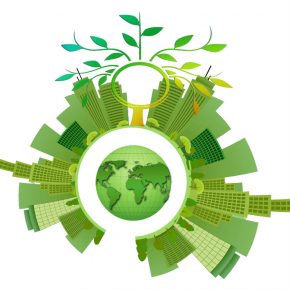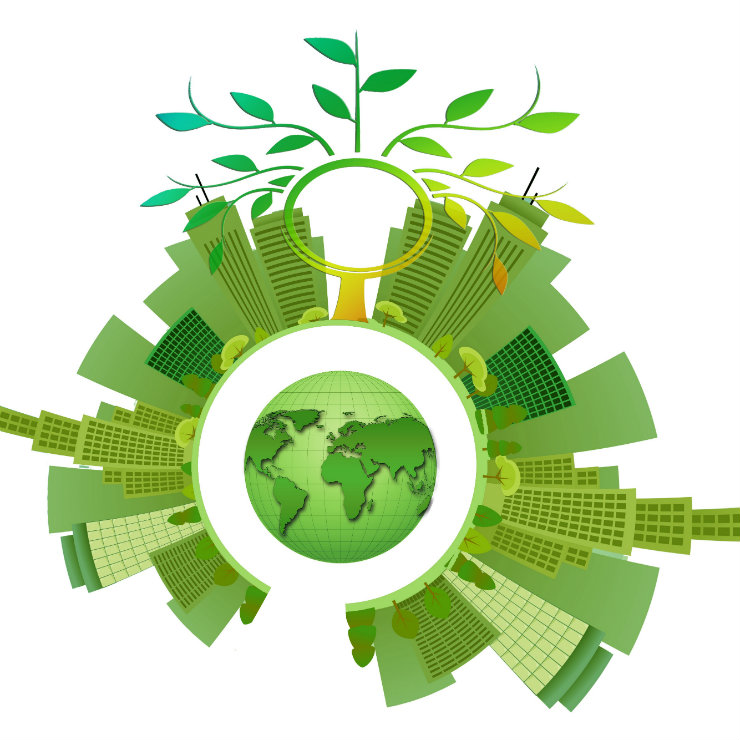
(geralt, CC)
The recommendations of the 20 experts formed an action plan that was adopted in March 2018. In short, a new industrial model requires new thinking about financing, and how to move from short-term thinking to long-term growth.
During a seminar “Financing Permanent Sustainable Development”, organized by Centre for Social and Economic Research (CASE) and mBank, Maciej Bukowski, the president of WiseEuropa Warsaw Foundation Institute for Economic and European Studies, identified three megatrends that are leading to a new evaluation in thinking about what an economy is actually for.
These trends he stated are: technological progress (that take 5-8 decades to develop fully); demographic change, including an ageing population and urbanisation; a growing pressure of climate change, with pressure on local ecosystems together with a rise in demand for limited water supplies and in production of CO2.
Bukowski suggested that we should search for a balance of risks and conflicts, reduce carbon emissions, and combine it with social well-being.
“The background,” he argued, “is the withdrawal from fossil fuels and the investment in fossil fuels. Mid-merit coal power stations will become unprofitable and the financial markets will shy away from financing coal projects. By the mid-2020s only governments will be financing coal. Trading assets, mainly CO2 certificates, as Czechs are doing, could be a source of income.”
The problem with Central and Southeast Europe (CSE) countries is that they are not very good in introducing a strategy for sustainable growth. USA , Canada, Western Europe, Japan, South Korea and China are much better. Germany has been reorienting its energy strategy from nuclear power and coal for some time. The Polish strategy of playing the weak newcomer is looking increasingly threadbare: in 10 years’ time it may be unacceptable.
Mieczysław Groszek, one of the authors of the EC’s Report, said that the report is an administrative document, partially a result of the 2017 Paris conference. “It could become a new constitution for the EU. It has a strategic reach and proposes that the capital markets finance the changes, following the US example where private capital finances 80 per cent of renewable energy,” he added.
“The policy aims are to integrate sustainable development into the EU’s financial policy; apply the EU policy to the most important legislative actions; and plug the gaps in investment, for example EUR180bn per year to hold worldwide temperature at the current levels.”
All participants of the conference agreed that there should be legal obligations for an investor to provide more information on investment decisions. Transparency and disclosure are vital as the investor needs to know where the money goes. Common standards in implementation need to be agreed concerning green certificates or labelling. The report lists 27 recommendations for transparency, in line with the idea to integrate sustainable development into the EU actions. The document is a road map that could change the economic order in Europe, Mr Groszek concluded
Dariusz Winek, representative of the Polish Banking Association (he is also a member of the EC expert group to support the financing of a circular economy), stated that “green investment is an oxymoron- green must be profitable, after all,” he added.
“Green does not necessarily mean lower costs or cheaper finance,” he continued, “especially in the field of new technology, where investment potential is hard to quantify accurately. The financial sector should change its attitude to innovation: the latter is risky for the banking sector as investment produces no clue as to cash flow or financial modelling.”
Risk and profitability are two deciding factors to undertake any investments. This inherent caution has to be overcome for sustainable financing. According to Mr Winek there is a question of perception between macro and micro, for example green certificate prices have fallen but the number of certificates issued has risen. There is still the perception among investors, he argued, that sustainable financial assets may not mean lower risk for the environment and society or they may become those that may lose their value in the marketplace.
There ought to be a carrot and stick approach to regulation, which could stimulate the banking sector. “Is long term growth an aim which ignores history – are we making the same mistakes in our assumptions as in 2008? The banking sector should be an actor not a bystander. There should be forward thinking, stress testing of concepts and scenarios,” he added.
This is only the beginning of the road. Environmental aims should be a priority and social one secondary. The breakthrough point is 2019-2020 when changes cannot any longer be reversed.
Click here to read the EC Report.


